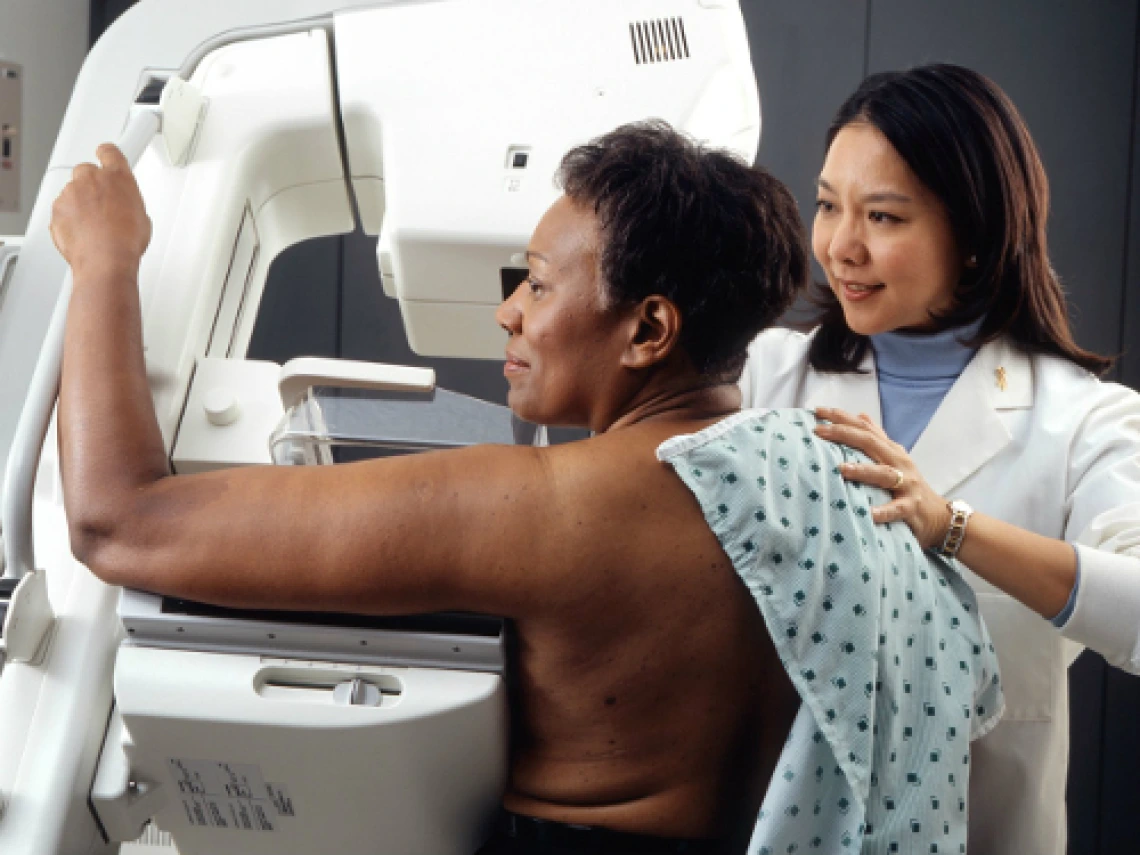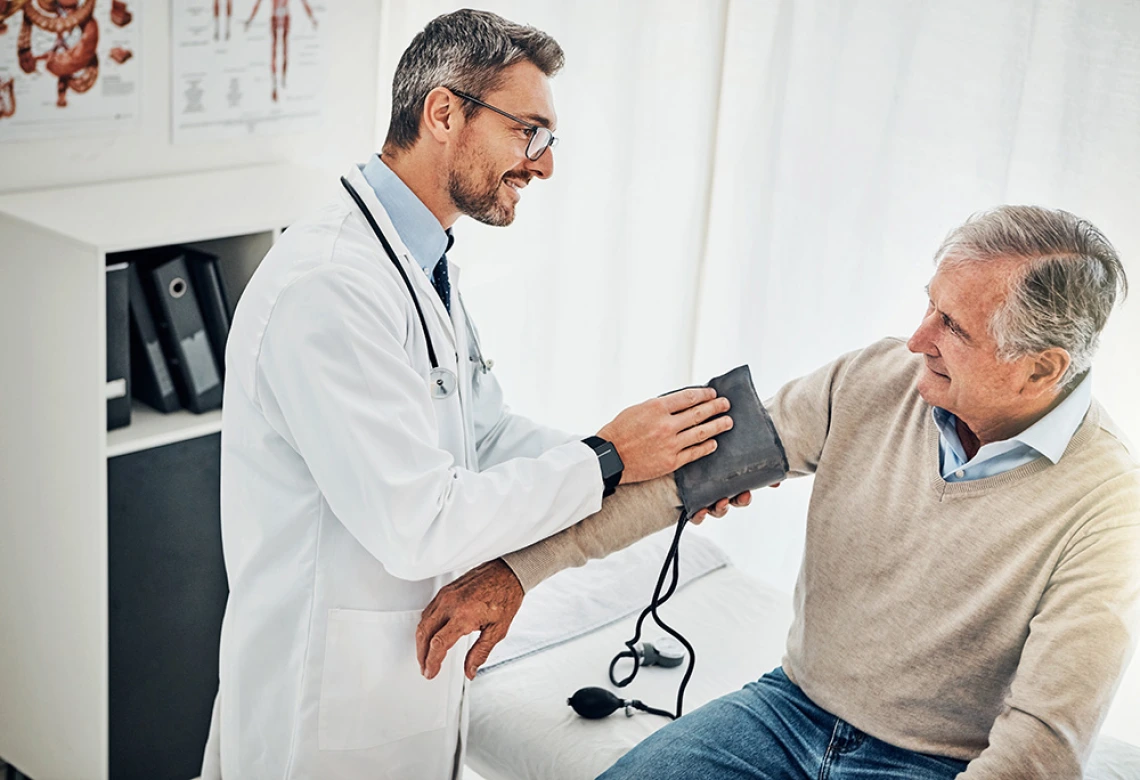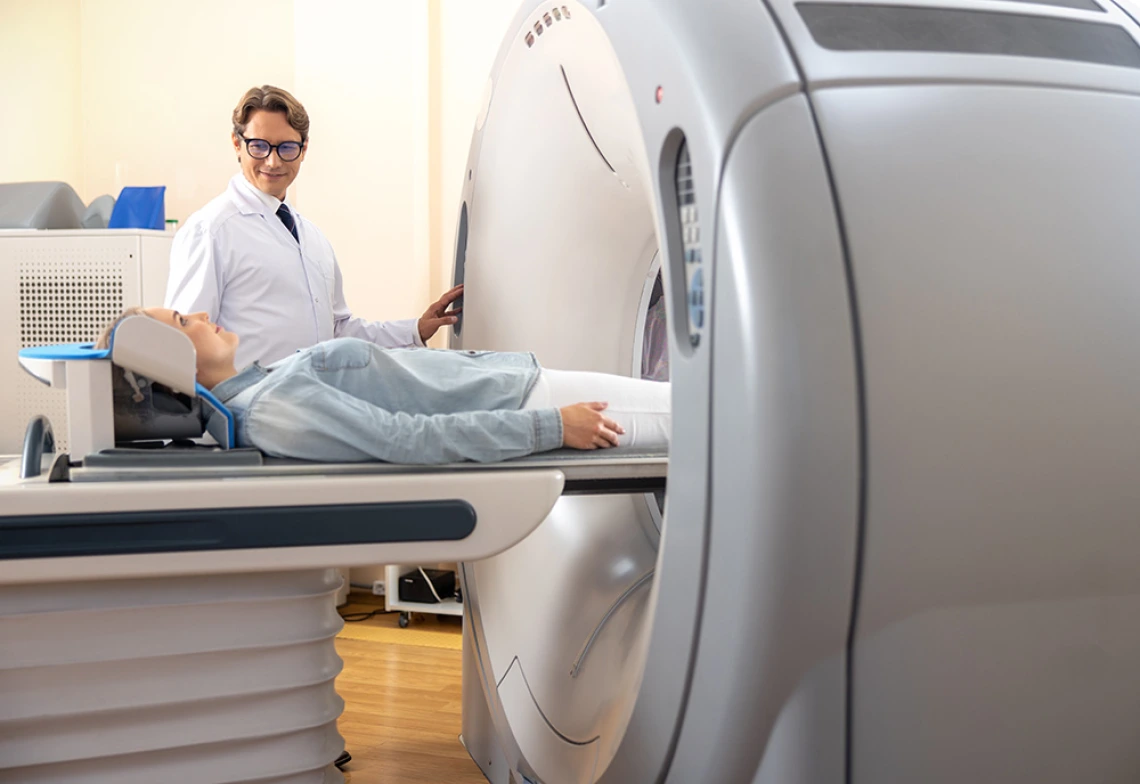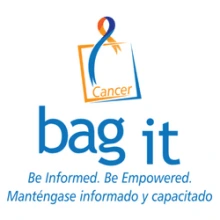
Stay in control of your health
While not all cancers can be prevented, there are several ways to reduce one’s cancer risk including developing healthy habits and limiting harmful exposures like smoking. COE offers access to leading cancer experts and prevention resources to help support individuals wherever they may be on their cancer journey.
Screening Guidelines
Know the cancer screening guidelines – early detection saves lives!
The following information follows The United States Preventative Services Taskforce (USPSTF) Guidelines

Breast Cancer Screening
All women get screened for breast cancer every other year starting at age 40.
- A mammogram is the most common screening test for breast cancer.
- Magnetic resonance imaging (MRI) may be used to screen women who have a high risk of breast cancer.

Cervical Cancer Screening
Women ages 21-29 should be screened w/a Pap test every 3 years.
Women ages 30 through 65 should be screened with any of three tests:
- every 5 years with high-risk HPV testing alone
- every 5 years with Pap and high-risk HPV co-testing
- every 3 years with a Pap test alone

Prostate Cancer Screening
There is no standard or routine screening test for prostate cancer. Many prostate cancers detected with PSA testing are not deadly, and early detection and treatment of PSA-detected cancers have not been shown to reduce the chance of dying from prostate cancer.
- If men are screened, two tests are commonly used:
- DRE (digital rectal exam)
- PSA Test (prostate-specific antigen)
- For men 70 and older, the USPSTF does not recommend PSA-based screening.

Colorectal Cancer Screening
USPSTF Colorectal Cancer screening guidelines:
Adults aged 45 to 75 years get screened for colorectal cancer.
- Several recommended screening tests are available:
- Fecal immunochemical test (FIT) every year
- Stool DNA-FIT every 1 to 3 years
- Computed tomography colonography every 5 years
- Flexible sigmoidoscopy every 5 years
- Colonoscopy screening every 10 years

Lung Cancer Screening
Adults aged 50 to 80 years who have a 20-pack-year smoking history and currently smoke or have quit within the past 15 years:
- Screen for lung cancer with low-dose computed tomography (CT) every year.
- USPSTF Recommends clinicians stop screening once a person has not smoked for 15 years or has a health problem that limits life expectancy or the ability to have lung surgery.
Community Resources
Find and connect with local organizations, clinics and community partners to support you along your health and cancer journey.
Community Partners
We are proud to partner with organizations, community members, leaders, and stakeholders to reach Arizonans where they work, live, play to built a #CancerFreeAZIf you are interested in collaborating with the Office of Community Outreach and Education for your next community event please contact us at coe-community@arizona.edu









